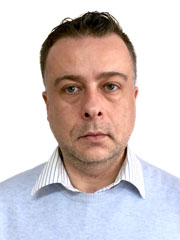About the article
DOI: https://www.doi.org/10.15219/em66.1257
The article is in the printed version on pages 46-54.
 Download the article in PDF version
Download the article in PDF version
How to cite
E-mentor number 4 (66) / 2016
Table of contents
About the author
Assessment of the activity of destination management organizations: implications for theory and practice
Jacek Borzyszkowski
Abstract
The considerations included in the article resulted from several years of research carried out by the author on the activity of destination management organizations (DMO) in various European countries. Their purpose is to identify possible implications for science and practical solutions resulting from an assessment of the activity of destination management organizations. In the article, the most important changes that occur in the organizations examined are indicated with emphasis on a visible transition from the marketing orientation to more comprehensive tourism management in a given area. Those observations originated from the author's previous research described in a separate monograph. That initial part of study was followed by the research carried out in March 2016, which allowed for verification of the previously obtained results based on the opinions of the representatives of 34 European DMOs. The participants of the study highly appreciated the recommendations and solutions proposed by the author aimed at streamlining the activities of destination management organizations. Their interest also convinced the author of the need of further research in relation to those entities.
Bibliography
- Bakucz M., The Role of Tourism Destination Management Organisations in Hungary, [w:] Regional Studies Association Annual Conference 2008 - Regions: The Dilemmas of Integration and Competition, 2008, s. 4-5.
- Batarow D., Bode M., Jacobsen M., Case Presentation: Destination Management Organizations (DMO) - Cross National Sites, Institut für Wirtschaftsinformatik, Universität Münster 2008.
- Blackman D., Kennedy M., Ritchie B.W., Knowledge Management: the Missing Link in Destination Marketing Organisation Governance? "Current Issues in Tourism" 2011, Vol. 14, No. 4, s. 337-354, http://dx.doi.org/10.1080/13683500.2010.489637.
- Borzyszkowski J., Organizacje zarządzające obszarami recepcji turystycznej. Istota, funkcjonowanie, kierunki zmian, Wydawnictwo Uczelniane Politechniki Koszalińskiej, Koszalin 2015.
- Crouch G.I., Modelling Destination Competitiveness. A Survey And Analysis Of The Impact Of Competitiveness Attributes, CRC for Sustainable Tourism Pty Ltd 2007, Australia 2007.
- Dodds R., Destination Marketing Organizations and Climate Change - the Need for Leadership and Education, "Sustainability" 2010, Vol. 2, No. 11, s. 3449-3464, http://dx.doi.org/10.3390/su2113449.
- Hankinson G., The measurement of brand orientation, its performance impact, and the role of leadership in the context of destination branding: An exploratory study, "Journal of Marketing Management" 2012, Vol. 28, No. 7-8, s. 974-999.
- Jenkins J., Dredge D., Taplin J., Destination planning and policy: process and practice, [w:] Y. Wang, A. Pizam (eds.), Destination marketing and management: theories and applications, CABI, Wallingford 2011.
- Kachniewska M., Model tworzenia sieciowego produktu turystycznego, Mazowiecka Regionalna Organizacja Turystyczna, Warszawa 2014/2015.
- Kachniewska M., Polaryzacja podaży turystycznej jako stymulanta rozwoju sieciowych produktów turystycznych, "Ekonomiczne Problemy Turystyki" 2014, nr 1 (25).
- Kusa R., Uwarunkowania rozwoju klastrów turystycznych, [w:] B. Godziszewski, Zarządzanie organizacjami w gospodarce opartej na wiedzy. Kluczowe relacje organizacji w gospodarce opartej na wiedzy, TNOiK, Toruń 2008.
- Majewski J., Struktury organizacyjne dla brandingu produktów terytorialnych, "Rocznik Naukowy Wyższej Szkoły Turystyki i Rekreacji im. M. Orłowicza w Warszawie" 2007, t. 6.
- Manente M., Minghetti V., Destination Management Organizations and Actors, [w:] D. Buhalis, C. Costa (eds.), Tourism Business Frontier, Elsevier 2006.
- Middleton V.T.C., Clark J., Marketing in Travel and Tourism, Butterworth Heinemann, Oxford 2002.
- Morrison A.M., Destination Management and Destination Marketing: The Platform for Excellence in Tourism Destinations, "Tourism Tribune" 2013, Vol. 28, No. 1, s. 6-9, http://dx.doi.org/10.3969/j.issn.1002-5006.2013.01.001.
- Morrison A.M., Hospitality and Travel Marketing, Delmar, Albany 1998.
- Padurean L., Looking at Destination Governance Through Three Lenses, BEST EN, Vienna 2010.
- Pechlaner H., Volgger M., Herntrei M., Destination management as interface between destination governance and corporate governance, "Anatolia - An International Journal of Tourism and Hospitality Research" 2012, Vol. 23, No. 2, s. 151-168, http://dx.doi.org/10.1080/13032917.2011.652137.
- Pennington-Gray L., Pizam A., Destination crisis management, [w:] Y. Wang, A. Pizam (eds.), Destination marketing and management: theories and applications, CABI, Wallingford 2011.
- Pike S., Destination Marketing. An Integrated Marketing Communication Approach, Elsevier 2008.
- Pike S., Page S., Destination Marketing Organizations and destination marketing: a narrative analysis of the literature, "Tourism Management" 2014, Vol. 41, s. 202-227, http://dx.doi.org/10.1016/j.tourman.2013.09.009.
- Presenza A., The performance of a tourist destination. Who manages the destination? Who plays the audit role? Campobasso, University of Molise, Italy 2005, s. 2-6, www.esade.edu/cedit2005/pdfs2005/papers/presenza_angelo.pdf.
- Roman M., Znaczenie innowacji w funkcjonowaniu sektora turystycznego - podejście teoretyczne i praktyczne, "Ekonomiczne Problemy Turystyki" 2014, nr 1(25).
- Sigala M., Marinidis D., DMO, e-Democracy and Collaborative Destination Management: An Implementation Framework, [w:] U. Gretzel, R. Law, M. Fuchs (eds.), Information and Communication Technologies in Tourism, Springer, Wien 2010.
- Soliński T., Znaczenie klastrów w transferze innowacji i rozwoju turystyki, [w:] J. Krupa, T. Soliński (red.), Ochrona środowiska w aspekcie zrównoważonego rozwoju społeczno-gospodarczego Pogórza Dynowskiego = Environmental protection in the aspect of the sustainable development of social-economic Foothills Dynowskie, Związek Gmin Turystycznych Pogórza Dynowskiego, Dynów 2012.
- Van Harssel J., Glossary - Destination Management Organization, [w:] R. Harrill (ed.), Fundamentals of Destination Management and Marketing, Educational Institute American Hotel & Lodging Association, Michigan 2005.
- Wagenseil U., Destination & DMO &, Boundaries, Timisoara & Fagaras, Turism Durabil.ro, Unit for Sustainable Development of Tourism, 2010.
- Wang Y., Destination marketing and management: Scope, definition and structures, [w:] Y. Wang, A. Pizam (eds.), Destination marketing and management: theories and applications, CABI, Wallingford 2011.

